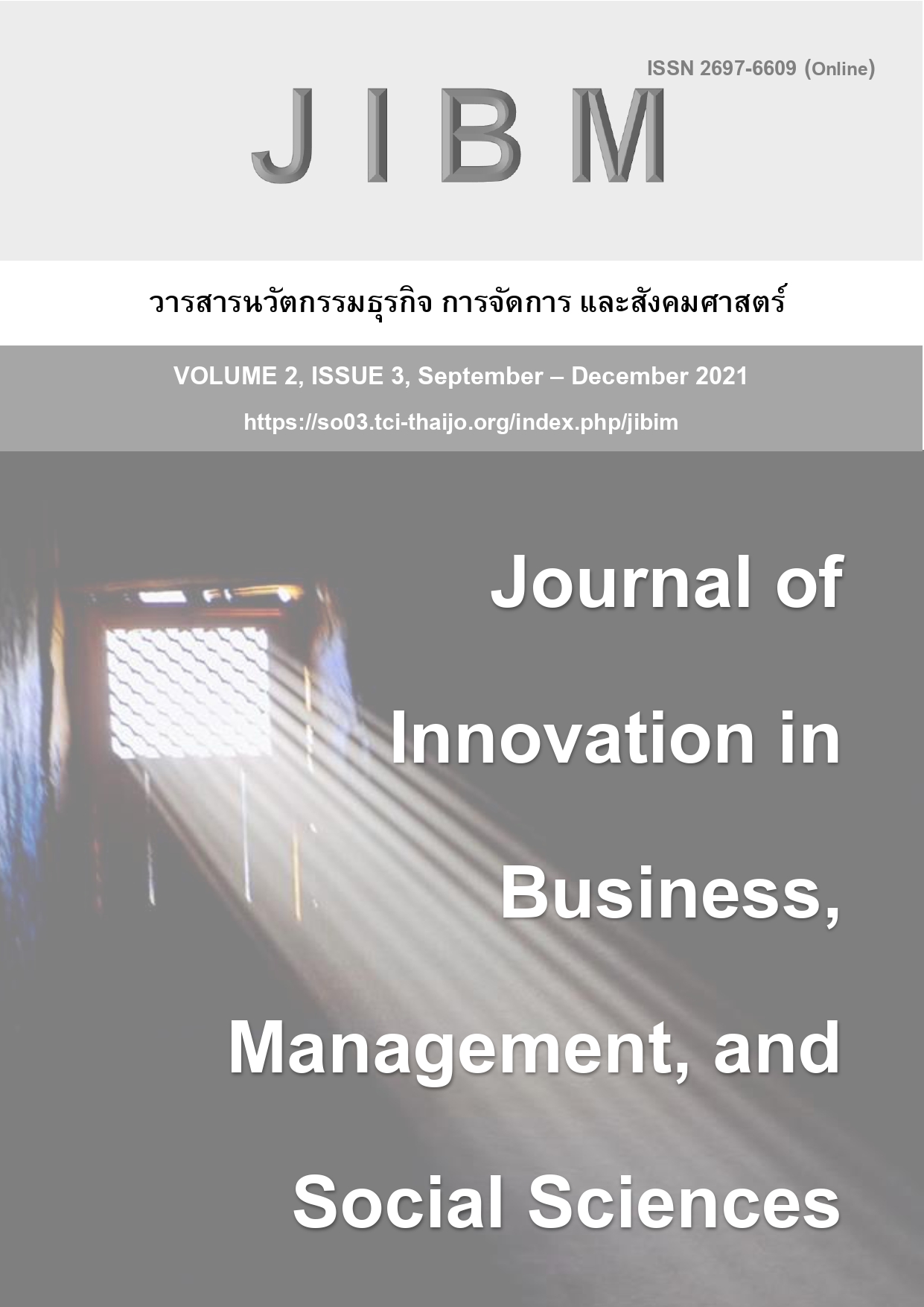AUDIT QUALITY AND REAL EARNINGS MANAGEMENT: EVIDENCE FROM THAILAND
คำสำคัญ:
real earnings management, audit qualityบทคัดย่อ
This study aims to investigate whether audit quality is related to real earnings management in Thailand, with a total of 368 listed companies or 2,576 observations in 2013–2019. In addition, this study uses a balanced-panel data set, which is defined as a set of observation units in every observation time period. Results indicate that the audit fee is significantly and negatively related to abnormal discretionary expense, and big4 is insignificant. The negative relationship between audit quality and real earnings management indicates that a high audit fee is associated with lower abnormal discretionary expense. Moreover, audit fee and big4 are insignificant in abnormal operating cash flow and abnormal production cost. The overall signs of real earnings management activities as signalled by the real earnings management index show insignificant results in audit fee and big4 audit firms.
เอกสารอ้างอิง
Alhadab, M. and Clacher, I. (2018). The Impact of Audit Quality on Real and Accrual Earnings Management around IPOs. The British Accounting Review, pp.442-461.
Alzoubi. (2016). Audit Quality and Earnings Management: Evidence from Jordan. Journal of Applied Accounting Research, Vol. 17, No. 2, pp. 170-189.
Baltagi, B. (2005). Econometrics Analysis of Panel Data. John Wiley & Sons.
Basu, S., Hwang, L., and Jan, C. (2001). Differences in Conservatism between Big Eight and Non-Big Eight Auditors. Working paper. City University of New York and California State University.
Bumrungyat, N. and Sutthachai, S. (2016). A Relationship Between Real Activities Earnings Management and Debt Covenant Maintenance of Listed Companies in The Stock Exchange of Thailand. Nida Business Journal, pp. 94-114.
Chi, W., Lisic, L. L., and Pevzner, M. (2011). Is Enhanced Audit Quality Associated with Greater Real Earnings Management? Accounting Horizons, Vol.25, No.2, pp.315-335.
Cohen, Dey, and Lys. (2008). Real and Accrual-based Earnings Management in the Pre-and Post-Sarbanes-Oxley Periods. The Accounting Review, Vol. 83, No. 3, pp. 757-787.
Dechow, P.M. and Skinner, D.J. (2000), Earnings Management: Reconciling the Views of Accounting Academics, Practitioners, and Regulators, Accounting Horizons, Vol. 14, No. 2, pp. 235-250.
Ettredge, M. L., Li, C., and Scholz, S. (2007). Audit Fees and Auditor Dismissals in the Sarbanes-Oxley era. Accounting Horizons, pp.371-386.
Ewert, R., and Wagenhofer, A. (2005). Economic Effects of Tightening Accounting Standards to Restrict Earnings Management. The Accounting Review, Vol. 80, No. 4, pp. 1101-1124.
Fufuengsombat, N. (2016). Audit Quality and Earnings Management. Bangkok: Integrated Bachelor’ s and Master’ s Degree Program in Business and Accounting, Faculty of Commerce and Accountancy, Thammasat University.
Graham, J.R., Harvey, C.R., Rajgopal, S. (2005). The Economic Implications of Corporate Financial Reporting. Journal of Accounting and Economics, Vol. 40, pp. 3–73.
Houqe, M. N., Ahmed, K., and Zijl, T. V. (2017). Audit Quality, Earnings Management, and Cost of Equity Capital: Evidence from India. International Journal of Auditing, pp.1-13.
Institute of Chartered Accountants in England & Wales. (2005). Agency Theory and the Role of Audit. The Audit Quality Forum.
Jensen, M. C. and Meckling, W. H. (1976). Theory of the Firm: Managerial Behavior, Agency Costs and Ownership Structure. Journal of Financial Economics, Vol.3, No. 4, pp. 305-360.
Jensen, M. C. and Smith, C. W. (2000). Stockholder, Manager and Creditor Interests: Applications of Agency Theory. Cambridge and London: Harvard University Press, pp.136-167.
Jones, J. J. (1991). Earnings Management during Import Relief Investigations. Journal of Accounting Research, pp. 193-228.
Krishnan, G. V. (2003). The Association between Big 6 Auditor Industry Expertise and the Asymmetric Timeliness of Earnings. Auditing: A Journal of Practice and Theory, Vol. 22, No.1, pp. 109-126.
Roychowdhury, S. (2006). Earnings Management through Real Activities Manipulation. Journal of Accounting and Economics, Vol. 42, No.3, pp. 335-370.
Schipper, K. (1989). Commentary on Earnings Management. Accounting Horizons, Vol. 3, pp. 91-102.
Sitanggang, et al. (2020). Audit Quality and Real Earnings Management: Evidence from the UK. International Journal of Managerial Finance, Vol.16, No.2, pp. 165-181.
Tummanon, W. (2000), Do you know Creative Accounting and Earnings Quality?
Ionic Intertrade Resources.
Yoon, S. S., & Miller, G. A. (2002). Cash from Operations and Earnings Management in Korea. The International Journal of Accounting, Vol. 37, No.4, pp. 395-412.



